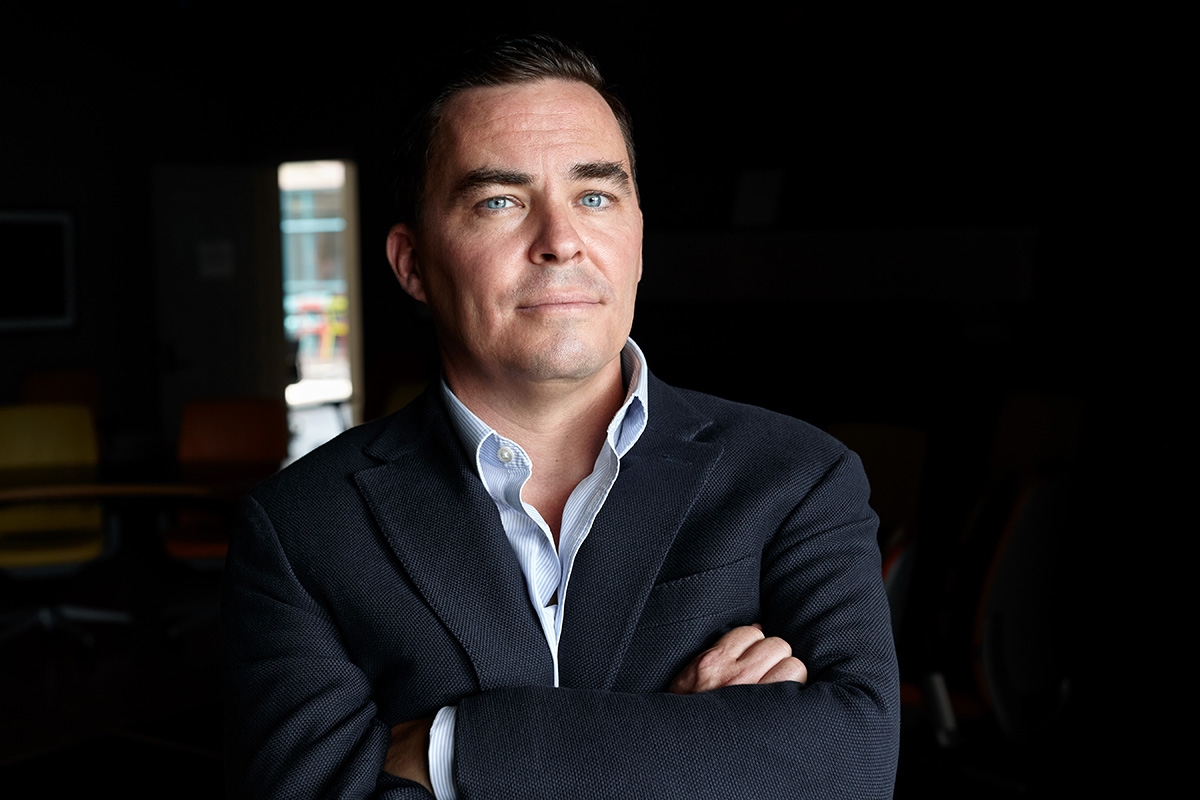
The University of Oklahoma’s Kyle Harper is no stranger to sharing ideas and asking large questions. His time at OU has been spent honing his craft as an educator in Classics and Letters and is widely regarded as a thought leader within the history community.
Along with serving as provost emeritus, he is the author of several books ranging from topics on the Roman Empire to early Christian morality – the most recent being the 2021 release of Plagues Upon the Earth: Disease and the Course of Human History.
During his professional career at OU, Harper has accrued a reputation by sharing ideas with colleagues both inside and outside of his field, leading to larger questions of research. This practice, among other attributes, has helped land Harper on the four-member staff of the Santa Fe Institute’s esteemed Fractal Faculty.
The Santa Fe Institute was founded in 1984 in Santa Fe, New Mexico, down the road from the Los Alamos National Laboratory. Here, a group of theoretical physicists and others came together to found a research center to fill what they perceived as a gap – a place where the new insights of complexity science, chaos theory and other cutting-edge ideas could come together to help understand phenomena without the usual walls between academic departments.
It has since become a globally leading hub for the study of complex systems, which the Institute defines as any system in which many agents interact and adapt to one another and their environments: the nervous system, the internet, ecosystems, economies, cities and civilizations.
Complexity science attempts to find common mechanisms that lead to complexity in nominally distinct physical, biological, social and technological systems. Harper’s body of work often bridges human history with the history of natural phenomena like climate or epidemiology, which makes him a perfect candidate for this position.
“The field of history is sometimes insular,” Harper said. “But if you stay in your lane, you’ll keep yourself from bumping into other people with new, interesting ideas.”
According to the institute, the Fractal Faculty program is a mechanism for bringing senior and influential thinkers into the Santa Fe Institute’s community for varying lengths of time for a quintessential, collaborative experience. Fractal Faculty builds on SFI’s cultural tradition of picking people over topics.
The faculty currently includes a cosmologist, an olfactory biologist and a molecular biologist. While being among the first four Fractal Faculty members is an honor in its own right, Harper can claim to be the lone historian among the current group as well as in its 39-year history.
Harper's interest in combining history and the sciences was nurtured during his time as a Master of Arts degree candidate majoring in history at Harvard – where he would eventually go on to earn his doctorate in 2007. While Harper entered grad school with a Bachelor’s in Letters from OU, he also held interests in physics and biology.
“The world makes you choose when you go to grad school,” Harper recalled. “I was lucky enough to have great mentors. Exposure to a range of fields during grad school was a huge influence on me and my work.”
Harper’s passion for the sciences served as platform for his growth of understanding in his research as well as making him a natural collaborator.
It was in grad school that Harper came to more fully understand the benefits of shared research. Harper’s mentor, Michael McCormick, a medieval historian, tasked him with determining if the Plague of Justinian and the Black Death were caused by the same bacterium.
Harper collaborated with a microbiologist in a study that involved scraping the dental cavities of plague victims from centuries before. Following tests, the original question was not satisfied with an answer – it would be another decade before improved technology determined that the two plagues indeed found their origin in the same germ.
Although the research did not find the optimal conclusion at the time, by combining human systems and natural systems, Harper’s eyes were opened to a new way of finding answers and understanding.
Harper’s interest in plagues and the relationship between their history and influence among the human story became the proper breeding ground for this type of work. This, along with his long list of other accomplishments, helped land him among the thinkers at the Santa Fe Institute.
“Over the last decade, I’ve been to numerous events at the Santa Fe Institute,” Harper said. “I always just love it. It gives you the freedom to think big.”
Whether he is working with oceanographers to find information on climate change’s impact on the fall of the Roman Empire or biologists tracking down the origins of population-altering germs, Harper’s love for collaboration has found a home among the Fractal Faculty at the Santa Fe Institute.
Harper will continue to collaborate and inquire with an eclectic group of intellectuals to find answers, or simply ask more questions that lead to other previously unforeseen avenues of thought.
“I feel very lucky as a historian to spend time around such interesting people,” Harper said. “The Santa Fe Institute is a place that encourages you to ask the very biggest and hardest questions. That’s what excites me.”